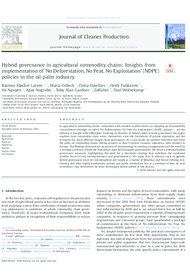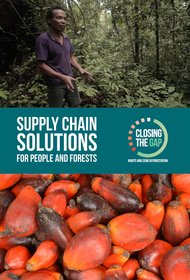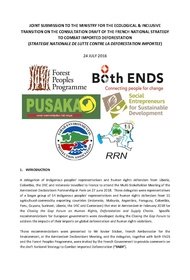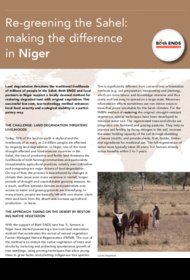Dutch government calls for investigation into Malaysian timber certification
The Dutch government expects PEFC International to undertake an investigation into its own role as a forest certification system, using the Malaysian Timber Certification Scheme (MTCS). "It is about time the Dutch government takes a leading role in ensuring Malaysian timber entering The Netherlands is not associated with deforestation and human rights abuses," states Paul Wolvekamp of Both ENDS. "Considering that the Dutch government has the ambition to build 900.000 houses in the immediate future, involving massive volumes of timber, such as timber from Malaysia for window frames, builders, contractors, timber merchants and local governments rely on the Dutch government to have its, mandatory, timber procurement better organised, i.e. from reliable, accountable sources'.
A preliminary investigation by the Timber Procurement Assessment Committee (TPAC), an independent expert group advising the Dutch government, identified the lack of required transparency under PEFC/MTCS as a clear violation of the Dutch timber procurement policy. TPAC further found that MTCS might fall short of the Dutch procurement policy with regards to the complaints procedure, the implementation of Free, Prior and Informed Consent (FPIC), conversion of forests and the lack of stop-work-orders while complaints are pending, amongst other issues. Consequently, the Dutch Ministry of Infrastructure and Water Management decided at the end of last year for TPAC to request from PEFC "substantive convincing evidence within a reasonable time that these issues are unfounded or to make an acceptable improvement on them within a reasonable time". TPAC supports PEFC's proposal to do a joint field visit.
In the report - published in January - TPAC criticised the lack of cooperation from MTCC, which did not engage with TPAC beyond responding to one question in an email. TPAC also questioned "to what extent PEFC and MTCC have effective provisions and procedures for identifying and mitigating structural irregularities" in place. TPAC criticised that "PEFC - as the system operator - did not indicate that itself or any other entity would have an overarching and monitoring role in this" and stresses that buyers must be confident that PEFC-certified timber "meets all quality requirements."
In May 2022, an Indigenous delegation from Sarawak held a series of meetings with decision-makers in the Netherlands on the unresolved issues around accountability, flawed consultations and deforestation, amongst others. The case, however, began much earlier than that: in 2010, TPAC assessed MTCS and concluded that the standard did fall short of the Dutch procurement criteria for sustainably produced wood with regards to Indigenous rights, obtaining FPIC, conversion of natural forests and access to and quality of maps. MTCS was therefore not accepted by TPAC, even though it already fell under the endorsement of PEFC. MTCS remained under separate review of TPAC in the procurement of timber. However, government procurement under both systems has been allowed since June 2014. In 2016, TPAC conducted a field visit to verify whether the outstanding issues had been resolved, but was severely restricted in access to sites and stakeholders in Malaysia. In its subsequent report, TPAC concluded that the issues appeared to be solved on paper but could not assess the field situation. In January 2017, the Dutch government accepted MTCS as complying with the procurement policy. Since 2020, the Dutch government has placed the acceptance of MTCS under the umbrella of the endorsement of PEFC International. Regarding the raised concerns, however, PEFC must now provide evidence of MTCS's compliance to its own standard and the Dutch timber procurement policy.
Both ENDS, SAVE Rivers, KERUAN, Bruno Manser Fonds and The Borneo Project welcome the decision by the Dutch government to further investigate the raised complaints with a field visit. Celine Lim, Managing Director of Malaysian Indigenous grassroots organisation SAVE Rivers, states: "We expect MTCC and PEFC International to work closely with their Dutch counterparts as much as with civil society and affected local communities to resolve these problems. Until then, it is irresponsible to continue unlimited export of timber from controversial sources."
Later this week, Malaysian and international stakeholders are meeting in Sarawak's capital Kuching to discuss Sustainable Forest Management, such as MTCS and PEFC, at a conference.
For more information
Read more about this subject
-
Letter / 22 April 2022
Letter to State Secretary Heijnen about the MTCS certificate
Both ENDS, also on behalf of FERN, NCIV and Milieudefensie, sent a letter to Vivianne Heijnen, the State Secretary for Infrastructure and Water Management, about the MTCS certificate. In practice, this Malaysian timber certificate appears to tolerate the violation of indigenous land rights and intimidation of indigenous organisations. The Netherlands should therefore suspend the approval of MTCS in its purchasing policy, among other things.
-
Dossier
Fighting for improvements in the production of palm oil
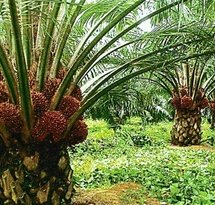
The production of palm oil is causing social and environmental problems worldwide. Both ENDS is working to make the sector fairer and more sustainable and is promoting alternatives for palm oil.
-
Publication / 28 February 2018
-
News / 23 November 2018
RSPO takes further steps towards a less harmful palm oil sector
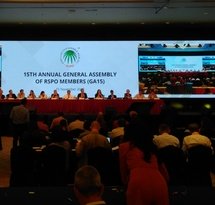
The production of palm oil is often accompanied by deforestation, environmental destruction and land grabbing. Local communities and activists who stand up against these problems are often threatened. Now the RSPO has taken significant steps in recent months to tackle these issues.
-
News / 28 February 2018
Human Rights defenders from all over the world visit EU to call for strong measures against deforestation
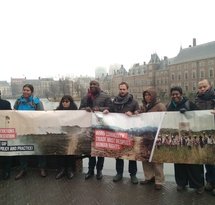
This week, from 12 until 16 February, fourteen indigenous leaders and human rights defenders from forest countries came to the Netherlands to call upon Dutch policy makers to take serious action against human rights abuses, land grabbing and further deforestation in relation to large scale agriculture, timber logging and mining. The Dutch harbours of Rotterdam and Amsterdam receive enormeous amounts of soy and palm oil, both for the Dutch market and for further transport into Europe and elswhere.
-
Transformative Practice
Non-Timber Forest Products (NTFPs)
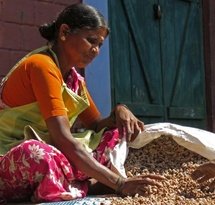
About one in every six people, particularly women, directly rely on forests for their lives and livelihoods, especially for food. This shows how important non-timber forest products (NTFPs) and forests are to ensure community resilience. Not only as a source of food, water and income, but also because of their cultural and spiritual meaning.
-
News / 17 September 2021
Beyond trees: the importance of Non-Timber Forest Products for communities
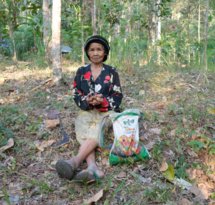
About one in every six people, particularly women, directly rely on forests for their lives and livelihoods, especially for food. This shows how important non-timber forest products (NTFPs) and forests are to ensure community resilience. Not only as a source of food, water and income, but also because of their cultural and spiritual meaning.
-
News / 14 June 2019
Both ENDS partner TUK presents symbolic tree to Dutch minister Schouten
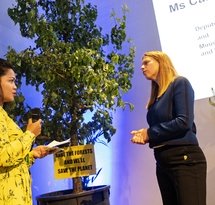
Last Thursday June 13, Rahmawati Retno Winarni of TUK, an Indonesian partner organisation of Both ENDS, presented a symbolic tree and an appeal to the Dutch Minister of Agriculture Carola Schouten, also on behalf of 10 NGOs. The joint NGOs are pushing the EU, including the Dutch government, for strict EU legislation to prevent the destruction of forests and ecosystems and to protect human rights.
-
News / 28 June 2018
Indigenous leaders present 'Supply Chain Solutions' and petition in Paris and Brussels
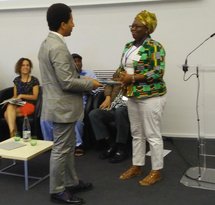
Last week, indigenous leaders from various countries were in Paris to urge action on deforestation and human rights abuses at the multi-stakeholder meeting of the Amsterdam Declarations Partnership. The group, invited by Forests Peoples Programme and Both ENDS, presented a publication 'Supply chain solutions for people and forests' containing a set of practical recommendations from local communities on how to make supply chains more sustainable and fair.
-
Publication / 27 June 2018
-
Transformative Practice
Farmer Managed Natural Regeneration
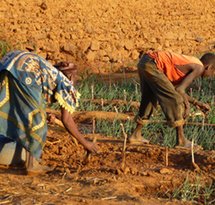
In various countries in the Sahel, vast tracts of degraded land have been restored by the local population by nurturing what spontaneously springs from the soil. They do this using a method called 'Farmer Managed Natural Regeneration (FMNR)'.
-
News / 3 February 2022
EU deforestation law can and must be stronger. Join #Together4Forests!
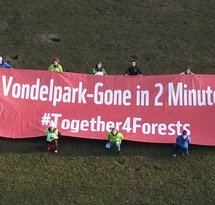
In the coming months, new EU regulation on deforestation-free products will be discussed in the Dutch and EU parliaments. The goal is that no more products related to deforestation in whatever way, will be imported into the EU . A very good and important initiative, but according to many civil society organisations, including Both ENDS, the bill that has now been drafted is far from sufficient.
-
Press release / 14 December 2020
Record submissions to public consultation urge EU to act on deforestation
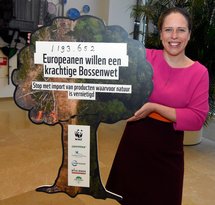
Brussels, Belgium - 14 December
A landmark 1,193,652 submissions to the EU's public consultation on deforestation were handed over to the European Commission this afternoon, all of which demanded a strong EU law to protect the world's forests and the rights of people who depend on them. The one million+ submissions have made this the largest public consultation on environmental issues in the history of the EU, and the second largest ever.
-
News / 26 October 2018
Analysis of the UN’s review of progress on SDG 15 ‘Life on land’
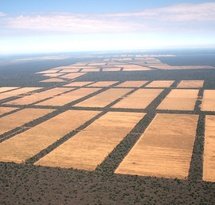
The sixth High-Level Political Forum (HLPF) on the Sustainable Development Goals (SDGs) was held at the UN Headquarters in New York in July 2018. The HLPF provides an opportunity to review global progress towards achieving the SDGs and for countries to present their own Voluntary National Reviews of the implementation of the SDGs. At this year's HLPF, SDG 15, known as the 'Life on Land'-goal, was under review.
-
Publication / 26 July 2018
-
Publication / 30 June 2016
-
News / 2 August 2019
EU unveils 'Action Plan' on Deforestation
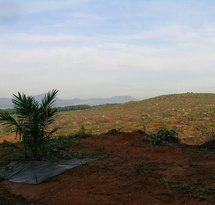
The EU is still one of the world’s largest importers of deforestation: EU demand for commodities like soy, palm oil, beef, coffee and cacao requires millions of hectares of tropical rainforest to be cleared. This deforestation has significant biodiversity and climate impacts, and is often linked to human rights violations and violence against local communities and indigenous peoples. Both ENDS and partners have been actively lobbying the EU Commission to adopt a robust action plan to address and prevent human rights violations and deforestation ‘embodied’ in EU imports of agricultural commodities.
-
News / 16 October 2020
Restoring forests, “free supermarkets” for Cameroon’s inhabitants
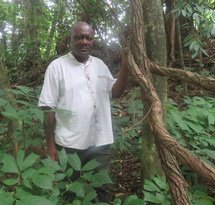
To Eric Wirsiy, director of CENDEP, the importance of forests is clear: not only do they function as a "free supermarket", providing foods and other things to local communities, but they are crucial to make landscapes resilient to climate change and other impacts.
-
News / 15 May 2018
Driving on palm oil: a dead end
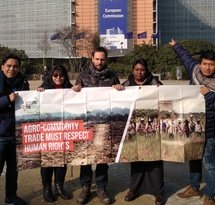
Both ENDS and Forest Peoples Program have formally requested the European Parliament, Commission and Council and the EU Commissioner for Trade, Cecilia Malmström, to consult indigenous and local communities impacted by EU trade in palm oil and other agricultural commodities in formal EU policy deliberations on these topics. Why did we decide to do so and what's it all about? Our colleague Michael Rice sheds some light on the matter.
-
Blog / 18 January 2019
Unambitious and uninspiring: the European Commission’s proposal for stepping-up action on global deforestation
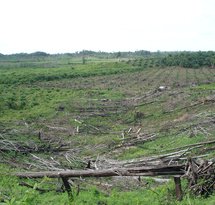
After five years of equivocation the European Commission has proposed a ‘roadmap’ for stepping-up EU action to address its contribution to global deforestation. Despite the escalating impact of EU trade in forest-risk commodities, regardless of repeated calls from the European Parliament for regulatory measures and contrary to the conclusions of the Commission’s own feasibility study in support of legislative intervention, the Commission has ruled-out out any new initiatives, let alone any legislative measures. The Commission’s solution to this complex problem: policy coherence.





